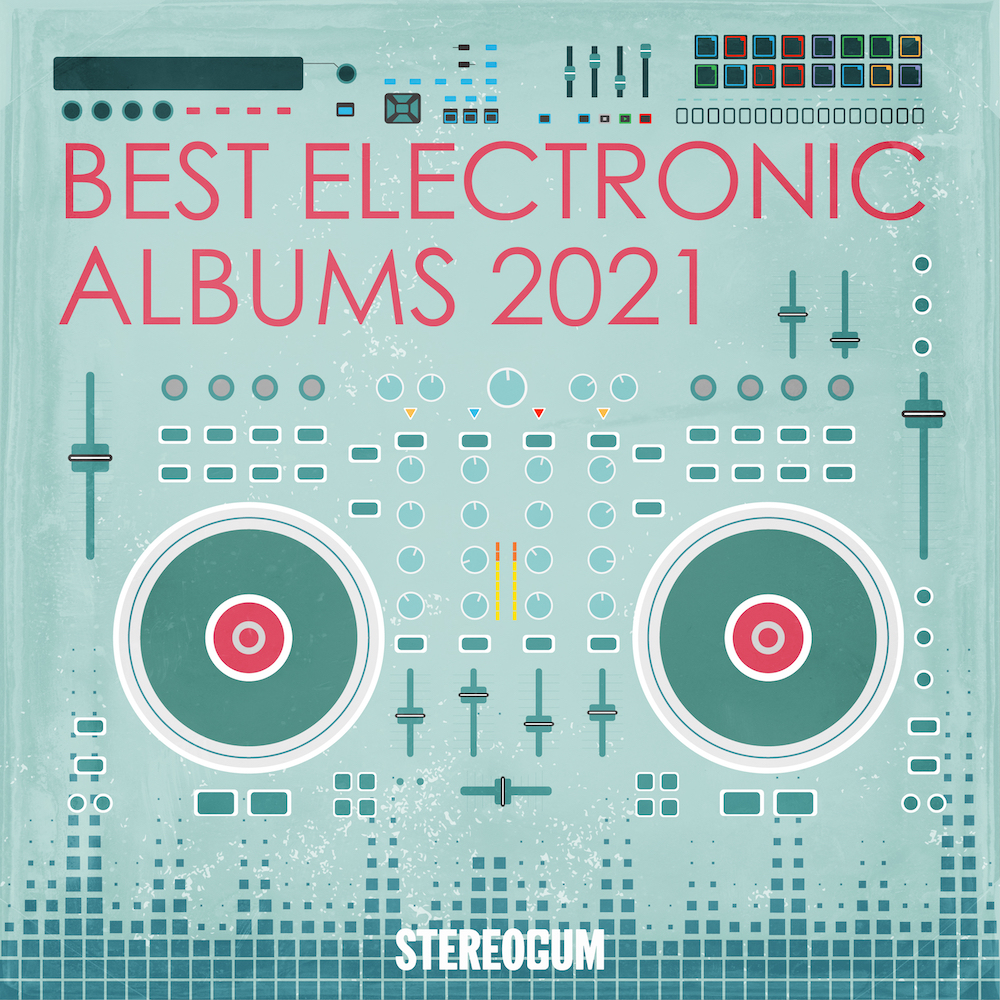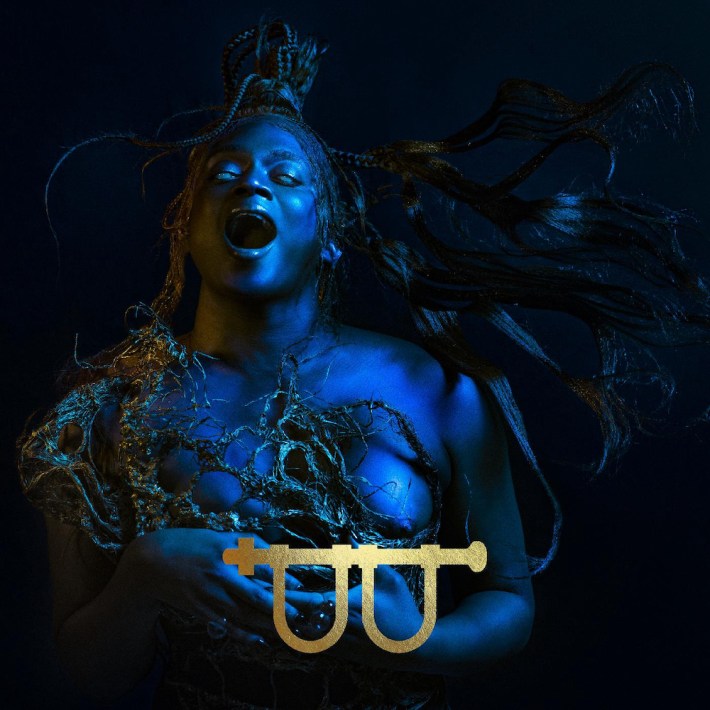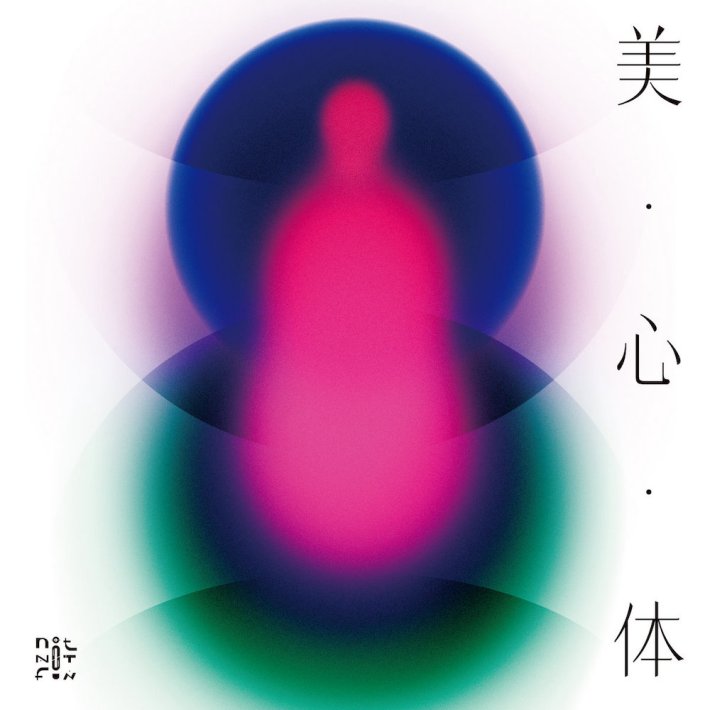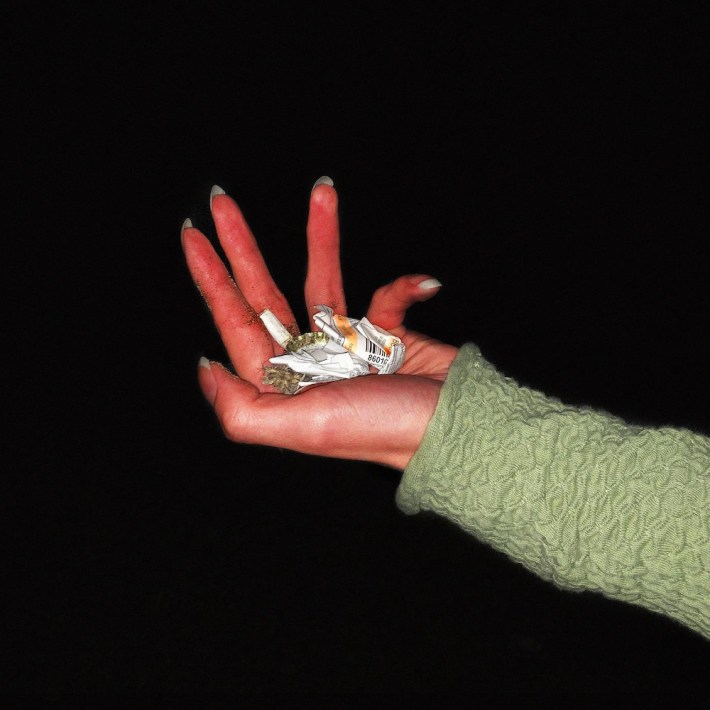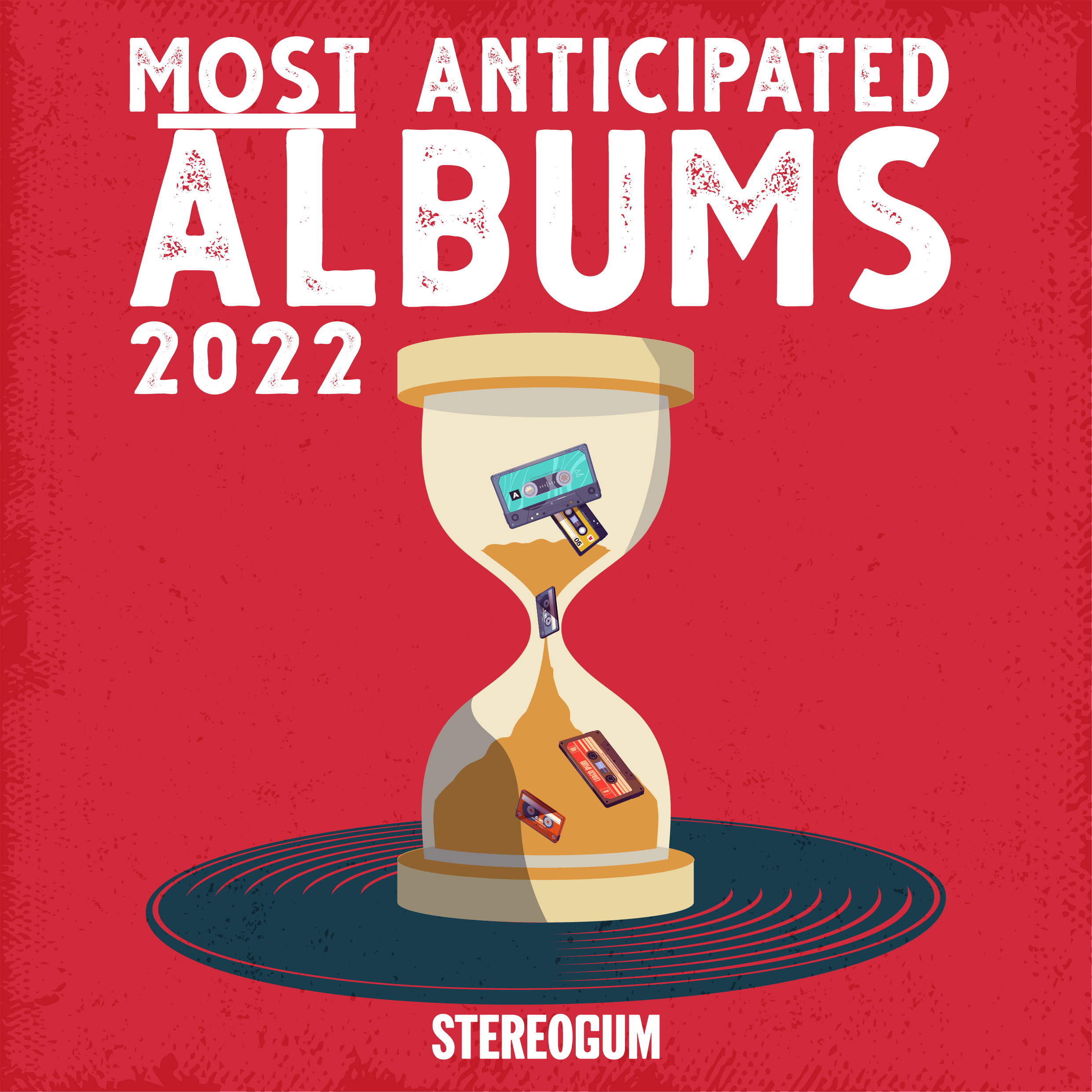The stylistic borders of electronic music only expanded further in 2021, but this list below shows how artists across genres and continents found so much in common to share. Shows and parties returned, inspiring excitement and hesitation in equal measure. Some found comfort in tough times by honing their craft or reinventing their music entirely. Everyone seemed to get burnt out on ambient music -- so some curdled it into something darker or satirized it or transcended the term entirely.
Like last year, many of these releases reflected periods of isolation, but I'm struck by how much people connected and collaborated through these albums, sometimes without ever being in the same room. In fact, some of the standout artists of this year, such as Eden Samara or Iceboy Violet, only showed up in features on wildly different albums from this list.
Here you’ll find the 10 best electronic albums of 2021, a year that inspired so much more than that. Check out the list (and a playlist of favorite tracks) below and leave your own favorites in the comments.
Lotic’s 2018 debut Power honed the producer and DJ’s sound to a diamond edge, turning ballroom to a ballistic extreme with lyrics addressing the wartorn reality of living Black and trans lives. The remarkably intimate follow-up Water brings to mind her mentor Björk’s own shift from Homogenic to Vespertine, finding a new power in softness and sensitivity. Romance, lust, and heartbreak provide inspiration for Lotic’s sharpest sound design on highlights like “Always You” and “Emergency” which crackle with bright melodies and also introduce her incredible singing voice. By the end of the closer “Diamond” — a massive eight-minute epic of orchestral swoops, soaring vocals, and crashing bass — Water feels like total reinvention, leaving Lotic’s future more open and exciting than ever before.

Perila - How Much Time It Is Between You And Me (Smalltown Supersound)
The debut album from Perila — aka the Russian-born, Berlin-based producer Aleksandra Zakharenko — overflows with glassy textures, quiet vocals, and nature sounds from crackling fire to rushing water. But do not mistake this for your typical ambient album. How Much Time It Is Between You And Me floods your ear with these small sounds instantly, making every hidden beat, buried whisper or foggy texture loom like a giant. Tracks like “You Disappear You Find Yourself Again,” “Memories Of Grass,” and the chilling a cappella “Vaxxine” utilize space as effectively as a horror movie, pulling you further into the album through a constant sense of mystery. Only the creaky closer “Fallin’ Into Space” provides a satisfying glimpse of light. Simultaneously one of the prettiest and creepiest sounding albums you’ll find this year.
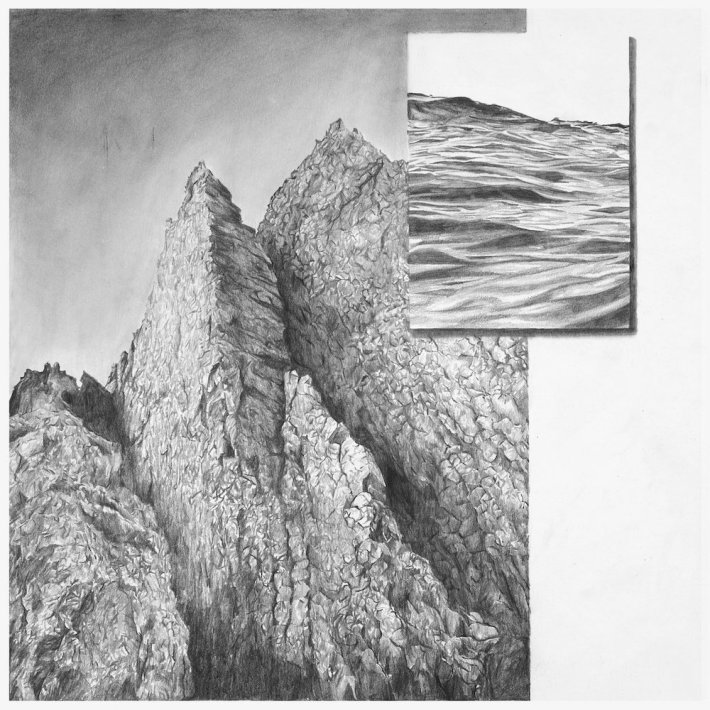
Slikback - MELT (Self-Released)
The crushing, noise-blasted club music of Slikback is as unrelenting and awe-inspiring as the Kenyan producer’s work schedule, which saw a new free release drop nearly every month of the year. Sitting at the top of that pile is MELT, an absolute rollercoaster from the moment opener “Toketa” hits you in a bloody rush that fuses grindcore and gqom. Every track features a collaborator — a globe-spanning roster including Kenyan ambient composer KMRU, Taiwan experimentalist Tzusing, Berlin stars like Objekt and Ziúr, and even stadium DJs like Brodinski — but those names quickly slip your mind as this singular experience unfolds. MELT is a record you could dance and mosh to in equal measure while acting as a doorway to even more.
The Japanese collective UNKNOWN ME have previously fused new age, dub, and ambient to imagine distant cities or trips to space. The brilliant Bishintai glows and whirrs like a busy metropolis, painting a futuristic world with moving melodies, wry humor, and ear-tickling sound design. Introduced as a meditation record — complete with guided instructions by intrusive but well-meaning computerized voices — UNKNOWN ME uses the frame of “ambient music” to gently poke fun at a world of endless convenience where no one can ever really relax. Though it sometimes recalls Oneohtrix Point Never’s R Plus Seven or James Ferraro’s dystopian Far Side Virtual, Bishintai never feels escapist and delivers emotional resonance in the twinkling steel drum standout of “Moisture Of View” and Lisa Nakagawa’s wordless vocals on “Treadmill.” Featuring incredible collaborations with Japanese footwork legend Foodman and Jim O’Rourke — whose own idea of commenting on genre by fully inhabiting it feels like a guiding light here — Bishintai reimagines ambient music with an emotion, personality, and virtuoso skill.
im hole, the delirious debut album from UK producer Aya, always balances its cathartic pleasures and creeping tensions by addition, piling on so much of both you can’t pull them apart. The singer’s vocals stretch and morph as erratically as her elastic beats. Spoken word phrases (“red shoes or brown shoes!?”) gain an ambiguous ominous power, where “vibe” blurs dangerously into “void.” Yet among the ketamine-fueled trapdoors of “tailwind” and “what if i should fall asleep and slipp under” lie some of the most sonically exciting and undefinable dance music in recent memory. Highlights like “the only solution i have is to jump higher,” “dis yacky,” and the cheekily titled “If [REDACTED] Thinks He’s Having This As A Remix He Can Frankly Do One” are cathartic and corrosive in their dizzying pulses. The album feels like a culmination of what used to be called “deconstructed club” in the 2010s, but really the most exciting thing about im hole is how you can hear Aya building something new in real time.
London producer Loraine James blends soft sensuality and nerve-prickling tension on her third album Reflections, featuring tracks filled with lush bass, drill beats, and constantly shifting voices. They include piercing verses by MCs like Iceboy Violet and Le3 Black, singers including Baths and Eden Samara (delivering one of two star-making features this year), and James herself, whose instantly iconic anxious murmured narrations cut through standouts like the rippling “Simple Stuff” or the video-game blips of “Self Doubt (Leaving The Club Early).” But as the moving title track and its inspiring closer “We’re Building Something New” make clear, Reflections is not an isolated affair. Alongside friends and family, James looks into her soul and out to the world, finding her best work to date.
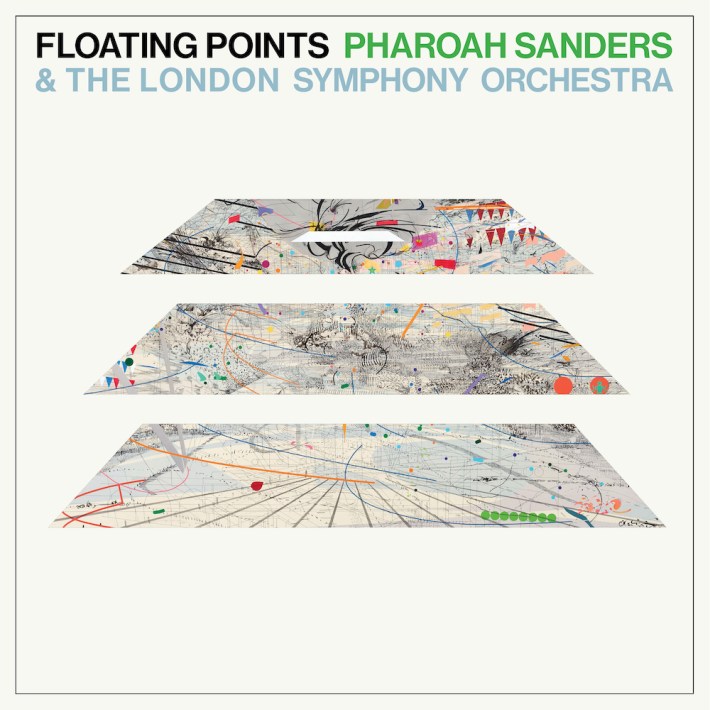
Floating Points/Pharoah Sanders/London Symphony Orchestra - Promises (Luaka Bop)
Blurring classical, jazz, and electronic music, Promises doesn’t so much hover between these genres as it floats above them like a cloud. Recorded with the London Symphony Orchestra, the album marks the return of saxophonist and spiritual jazz pioneer Pharoah Sanders, who befriended producer Sam Shepherd after hearing his 2015 debut Elaenia (which was essentially recorded and toured as a jazz album). Promises moves across nine movements as a single flowing track that sweeps you up like a current. Always returning to the same tender central melody, the pair build reflective atmospheres and chase thrilling tangents from Sander’s breathy lines on “2” to the orchestral sweep of “6” and the intertwining climax of synthesizers and saxophones through “7.” Its most affecting moment comes right in the center — I’ll be vague so as not to spoil where it sneaks up on you — when Sanders sings a brief wordless vocal exercise before diving into an impossibly expressive solo. It’s a startling moment, a reminder that a real human being is making these sounds.
Eris Drew has a legendary reputation as a DJ, crafting endlessly uplifting marathon sets of house, garage, and disco often alongside her partner, the producer Octo Octa. During a time when those opportunities can feel so out of reach, how lucky we are to receive this effervescent care package of a debut album. Quivering In Time bottles that energy into one of the most joyous listening experiences of the year, an unrelenting Hi-NRG rush of snapping breakbeats, chromatic synth melodies, and positive invocations. For anyone who couldn’t find a dancefloor this year for whatever reason, this electric full-length pumps the best party in town directly into your ears.
For years Dwayne Parris-Robinson has methodically teased out EPs and singles that recenter dubstep and UK bass music’s gravity towards the slow, spacey, and hypnotic. His tracks can get chilly and atmospheric, but they always shine with a personality and sense of wonder that’s warmly inviting. On his long-awaited debut album Soaked In Indigo Moonlight, Parris perfects that style in tracks like “Sleepless Comfort” and the opener “Movements,” while taking tangents into pop, techno, and more that are nothing short of jaw-dropping. Breakbeats fly wildly through the Call Super collaboration “Poison Pudding”, while “Crimson Kano” accelerates and decelerates with such elastic glee that it morphs into an entirely different song by the end. The crown jewel, however, is “Skater’s World” — a star-making turn from singer Eden Samara as bombastic as Jam City’s Classical Curves and as moving as the best SOPHIE tracks. After building such a consistent and impressive body of work, Soaked In Indigo Moonlight breaks the trajectory entirely. It’s the sound of Parris going lightspeed, taking his brilliantly idiosyncratic sound to an unknown frontier.
The first and last tracks on Painful Enlightenment, Jana Rush’s first album in six years, respectively namecheck one of the most famous jazz and footwork albums of all time. In that space between “Moanin’” and “Just A Taste,” the veteran Chicago producer builds on both histories to strike a path of overwhelming originality. Inspired by struggles with depression, Rush draws on a lifetime of experience (she released her first single in 1996 at the age of 13, billed as “the world’s youngest female DJ”) to craft music of endless rhythmic complexity and impossible psychic weight. Using slivers of guitar, piano, and roaring brass — alongside enough sampled shouts, yells, and orgasmic moans to fill both a fighting game and a sex tape — Rush builds impenetrable walls of sub-bass and loops such as “Disorientation” and the harrowing nine-minute “Suicidal Ideation” where even footwork’s iconic drum patterns slip out of reach. But the most hard-hitting peaks grind right against moments of profound reflection, like the title track and “G-Spot”, which pairs extraordinarily graphic sex samples with the loneliest piano chords imaginable. Though Rush never feels forced into footwork’s frames, the moments she chooses to go there — such as the cathartic “Disturbed” — are among the best the genre has ever produced. With each flawlessly balanced extreme Painful Enlightenment feels like Rush is mapping out a musical language all her own, one of profound humanity and infinite possibility.
